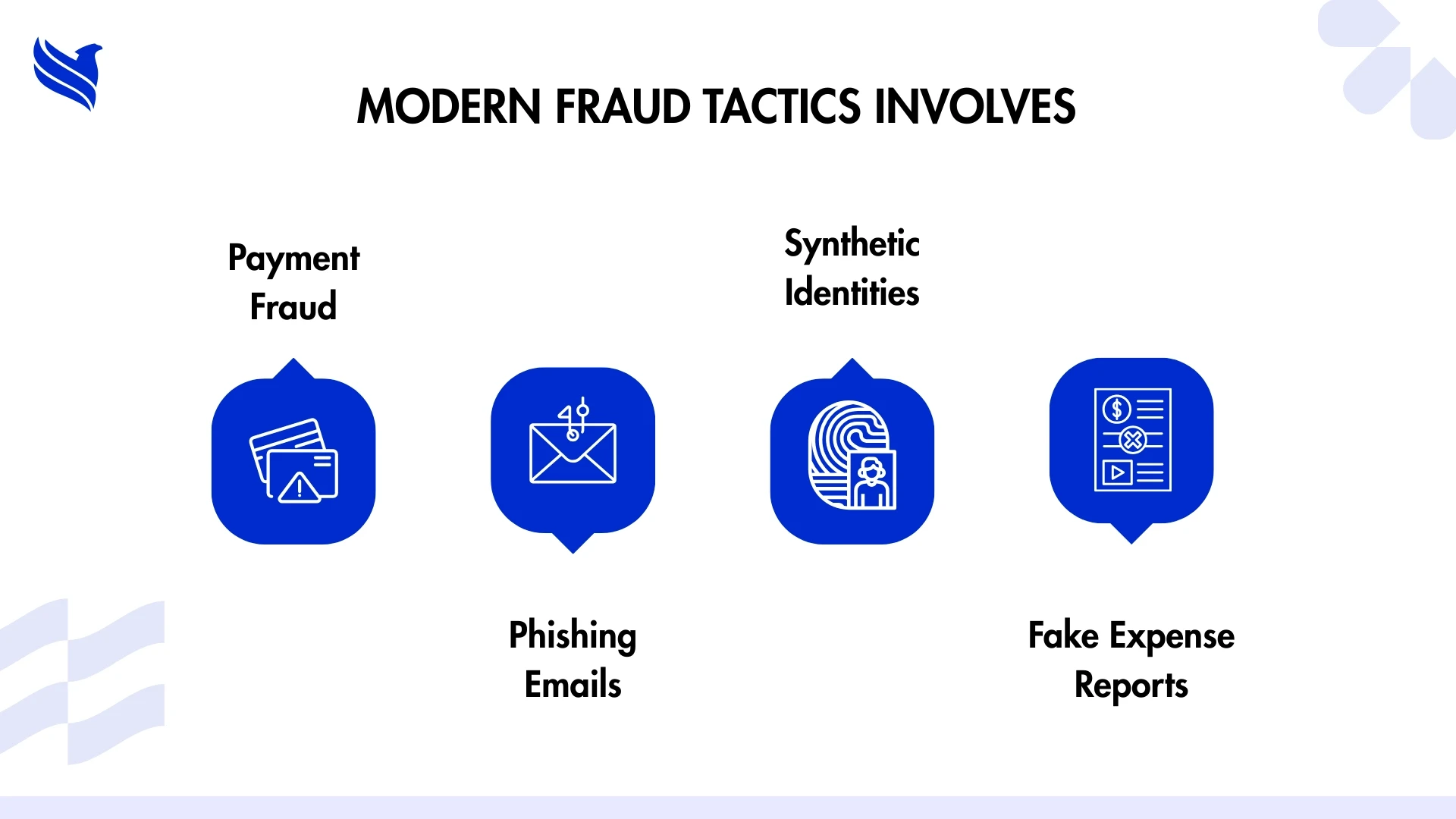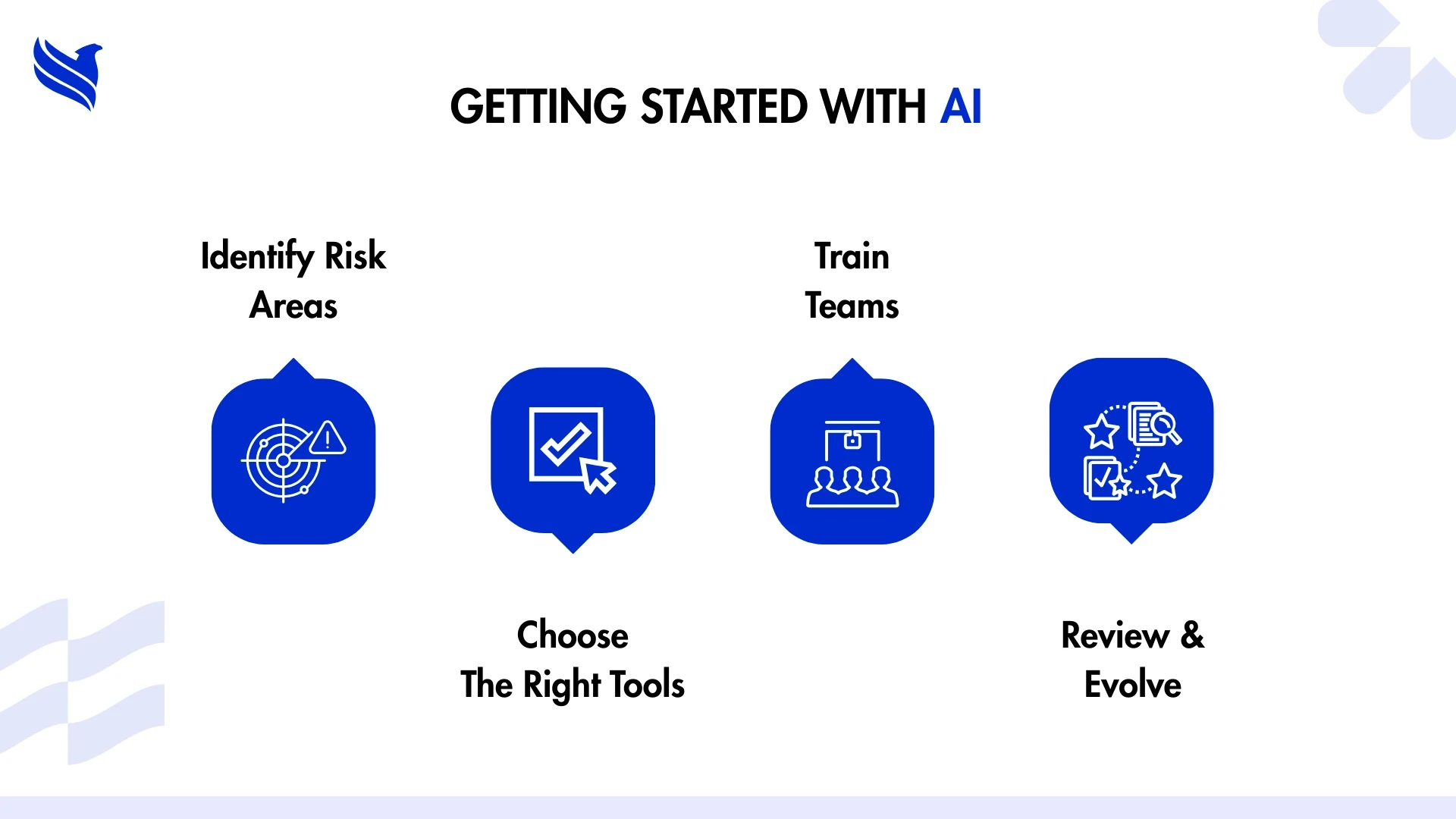“Your Small Business is an Easy Target for Fraud; Are You Prepared to Stop It with AI-Powered Fraud Detection?”
- Why every business need AI for fraud detection
- Rising fraud risks that businesses can’t ignore
- Key capabilities of AI in fraud detection systems
- Business benefits of AI fraud prevention
- Getting started: Steps for adopting AI fraud detection
- Outsourcing: The smart path to AI fraud prevention
- Conclusion: Staying ahead of fraud with AI
Fraud usually does not appear the same way that sensationalized breaches are portrayed in the media. For smaller businesses, it takes on a very muted but still damaging form: A scammer substitutes a supplier's bank account information; A payment is intercepted and diverted to a scammer; or simply an employee submits an expense report that is not commensurate with business practices. These examples do not represent an isolated event; they are pretty evident.
The Association of Certified Fraud Examiners (ACFE) has tracked the numbers for years: on average, companies lose about 5% of yearly revenue to fraud. Put that into perspective. A business earning $1 million could see $50,000 vanish. That’s not a rounding error, it’s the salary for another employee, the funds for opening a new branch, or the upgrade that could have made operations more efficient. What’s more concerning is that small firms, with leaner teams and fewer checks, tend to suffer bigger losses per case than large organizations.
That’s where AI fraud detection changes the equation. By spotting unusual activity in real time and learning from patterns, AI in fraud detection systems brings protection that used to be available only to corporations with deep pockets.
And here’s the good news: small businesses don’t need to hire full in-house teams to benefit. With the right artificial intelligence consulting services or outsourcing partners, even a lean operation can tap into AI-powered fraud detection without breaking the bank.
In this blog, the risks, benefits, and practical steps to adopt AI fraud prevention will be explored, along with why outsourcing is often the smartest route for small businesses.
Why every business need AI for fraud detection
There’s a common misconception that fraudsters only chase big companies. But statistics show a different reality. According to Hiscox’s Small Business Fraud Study, 28% of fraud cases affect small firms, and when it does, the financial damage can be proportionally worse.
The problem lies in resources. Large organizations have compliance departments, auditors, and multiple approval layers. A ten-person company often has the same person handling vendor invoices, payroll, and bank reconciliations. That overlap creates blind spots, and fraud thrives in blind spots.
For this reason, AI is essential for fraud detection in all businesses. By depending on end-of-month audits or quarterly reviews, fraud will only be discovered after the damage has been done. AI fraud prevention works differently. It runs quietly in the background, scanning every transaction against established patterns and behaviors in real time.
Picture this: a vendor who usually charges $5,000 suddenly sends an invoice for $10,000, or an employee’s account logs in from New York and then from London a few hours later. The system doesn’t ignore these red flags. It raises an alert instantly, giving the business a chance to react before small irregularities turn into major financial losses.
AI doesn’t get tired, doesn’t skip details, and adapts as new fraud techniques appear. For small businesses, this kind of constant watch isn’t a luxury anymore, it’s survival.
Rising fraud risks that businesses can’t ignore
Fraud today doesn’t show up in the same way it used to. Years ago, it might have been forged checks or a stack of fake receipts. Now it’s everything from digital payment scams to carefully planned identity tricks, and in many cases, the threats are harder to spot.
Some of the common risks include:
- Payment fraud: Payment fraud can derail a company’s cash flow, and for smaller firms, even one bad transaction can stall growth.
- Phishing attempts: Employees are still the easiest entry point. All it takes is one convincing email or fake login page for outsiders to gain access.
- Internal issues: Not all fraud comes from the outside. Payroll padding, false expense claims, or misuse of resources still drain revenue in many businesses.
- Synthetic identities: Criminals have started blending real and fake information to create new “customers,” making it tough for traditional checks to catch.
The real danger for smaller companies isn’t just the immediate loss. One scam can wipe out weeks of revenue, and once trust is broken, it can take a long time to rebuild.
Key capabilities of AI in fraud detection systems
AI in fraud detection systems works differently from traditional checks. Instead of relying on static rules like “flag transactions over $10,000,” it digs deeper, analyzing behavior, context, and patterns. Key capabilities include:
- Real-time alerts: Transactions are monitored as they happen. Suspicious activity is flagged immediately, giving businesses a chance to stop losses before money moves.
- Behavioral analysis: AI learns what “normal” looks like for each vendor, customer, or employee. If someone suddenly behaves outside that baseline, say, a supplier invoices five times their usual amount, the system highlights it.
- Adaptive intelligence: Fraud tactics keep changing. AI models improve over time, learning from each attempt and adjusting to spot new techniques.
- Cross-system monitoring: Fraud doesn’t usually stay in one corner. A single odd invoice could be connected to a login from the wrong location or a sketchy email. Looking at data across different systems makes it easier to spot links that might escape notice.
- Scalability: From a few hundred payments a month to tens of thousands, advanced fraud tools can manage the flow without losing accuracy. The volume doesn’t weaken the protection.
It’s this balance of speed, flexibility, and reach that makes AI fraud detection such a reliable defense in today’s business landscape.
Business benefits of AI fraud prevention
Fraud is not just a challenging financial issue; it can also undermine the trust and stability the company has built up over time. There are obvious benefits to employing Artificial Intelligence in the fight against fraud:
- Protecting finances: AI can identify suspicious scenarios before they impact businesses' bank accounts. Businesses often do not know they are victimized by fraud until they have lost the money and the damage is done, disrupting vendor service, payroll, or daily operating budgets.
- Building trust: Customers and business partners want to know their information and transactions are safe. Good fraud detection measures create trust that improves methods of engagement.
- Saving time: Manual methods of fraud checks consume time. AI can pick up the slack on all the routine monitoring so that employees can maximize productivity and trust in the program pushes it toward the next level of growth.
- Minimizing disruption: Unlike normal measures, AI is capable of differentiating between a potential scam and a legitimate transaction and can create a smooth way to minimize hassle for legitimate purchases.
- Staying ahead: Companies take speed out of the element of fraud detection when they have to rely on older systems. Companies that are investing in AI move rapidly and allow the consumer to have a safer experience.
According to PwC’s Global Economic Crime and Fraud Survey, nearly half of organizations reported some type of fraud in the past two years. Organizations with advanced detection systems reported smaller overall losses than those who did not invest in advanced detection systems.
Getting started: Steps for adopting AI fraud detection
Implementing AI doesn’t need to feel overwhelming. For small businesses, a phased approach often works best:
- Identify risk areas: Look at where fraud could hit hardest, supplier payments, payroll, or online transactions.
- Select tools that fit: There are AI fraud detection platforms tailored for smaller firms. Subscription models reduce upfront costs.
- Work with AI services: Engaging AI consulting services ensures solutions are customized to business needs instead of generic setups.
- Integrate gradually: AI should connect with existing accounting or CRM systems to avoid disrupting workflows.
- Train teams: Employees should know how to respond when the system flags an anomaly. AI plus human judgment makes fraud detection stronger.
- Review regularly: Partner with artificial intelligence consulting services for periodic audits. Fraud evolves, and systems must stay ahead.
Outsourcing: The smart path to AI fraud prevention
For many small businesses, the challenge isn’t recognizing the risk, it’s having the time, money, and expertise to manage it. Outsourcing bridges this gap.
Specialized partners offering AI-powered fraud detection bring:
- Access to the latest fraud detection technology.
- Skilled professionals monitoring systems round the clock.
- Flexibility to scale services as the business grows.
- Lower costs compared to building in-house teams.
Outsourcing lends itself particularly well to businesses already utilizing third-party support for accounting & bookkeeping. It is sensible to extrapolate the model into fraud detection, ensuring that both finances and operations are protected.
Conclusion: Staying ahead of fraud with AI
Fraud is no longer rare, it’s persistent, adaptive, and costly. For small businesses, ignoring it is simply too risky. The tools to fight back exist today, and AI in fraud detection makes them accessible at a scale that fits even lean operations.
Whether it’s spotting a suspicious invoice, blocking an account takeover, or learning new fraud patterns, AI fraud prevention is no longer optional, it’s essential. And with the option to work with artificial intelligence consulting services or outsourcing partners, protection is within reach for every business.
FBSPL helps small and mid-sized companies integrate AI in fraud detection systems, combining expertise with cost-effective outsourcing to keep businesses secure.
The future of fraud may be uncertain, but businesses don’t have to face it unprepared. Start building protection now, connect with FBSPL to explore how AI-powered fraud detection can keep your business safe.







